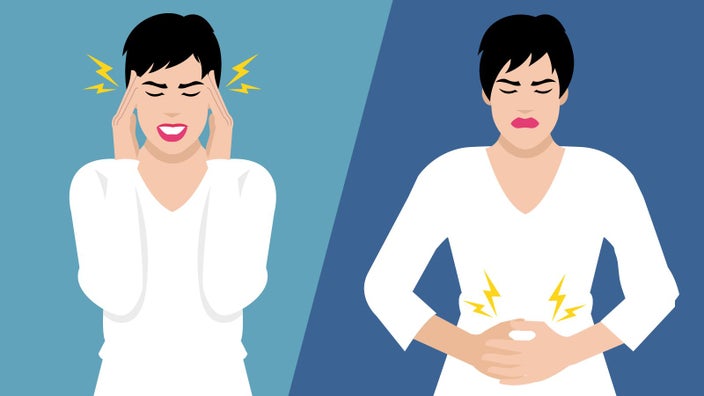Quetiapine is an antipsychotic that can help to treat schizophrenia, mania in people with bipolar disorder, and major depressive disorders. It is also sometimes prescribed for anxiety disorders, obsessive-compulsive disorder (OCD), Tourette syndrome, irritability associated with autism spectrum disorder (ASD), or agitation due to Alzheimer’s disease. Quetiapine can be taken orally or by injection. It may be prescribed depending on the symptoms one wants to treat. Often times quetiapine will be coupled with other medications for a more effective treatment plan. Adverse effects of this drug are typical for most antipsychotics including sedation and weight gain among others
Contents
What Is Quetiapine?
 Quetiapine is a prescription medication that can be used alone or with other medications to treat schizophrenia and symptoms of bipolar disorder. It may also be prescribed for depression, anxiety, and insomnia treatment. Quetiapine belongs to the class of medications called atypical antipsychotics, which work differently than typical antipsychotic drugs such as chlorpromazine (Thorazine) and haloperidol (Haldol). Atypical antipsychotic medications are believed to produce their effects by blocking dopamine receptors in the brain rather than affecting neurotransmitters within nerves throughout the entire body like typical neuroleptic drugs.
Quetiapine is a prescription medication that can be used alone or with other medications to treat schizophrenia and symptoms of bipolar disorder. It may also be prescribed for depression, anxiety, and insomnia treatment. Quetiapine belongs to the class of medications called atypical antipsychotics, which work differently than typical antipsychotic drugs such as chlorpromazine (Thorazine) and haloperidol (Haldol). Atypical antipsychotic medications are believed to produce their effects by blocking dopamine receptors in the brain rather than affecting neurotransmitters within nerves throughout the entire body like typical neuroleptic drugs.
What Does Quetiapine Treat?
 Quetiapine is also used to treat bipolar disorder. Bipolar disorder is a mental illness that causes extreme changes in mood, from mania (high energy and excitement) to depression. Some other uses of this
Quetiapine is also used to treat bipolar disorder. Bipolar disorder is a mental illness that causes extreme changes in mood, from mania (high energy and excitement) to depression. Some other uses of this
- It is used to treat schizophrenia, bipolar disorder, and depression.
- Treats symptoms of anxiety disorders such as obsessive-compulsive disorder (OCD) or posttraumatic stress disorder (PTSD).
- Can be taken along with other medications for the treatment of sleep problems.
Symptoms of Bipolar Disorder Quetiapine Treats?
 There are many symptoms of bipolar disorder that quetiapine can help with. Some of these symptoms include:
There are many symptoms of bipolar disorder that quetiapine can help with. Some of these symptoms include:
- Having a manic episode, which includes feeling overly happy or irritable, having a lot of energy, being more active than usual, and sleeping less
- Feeling very sad or hopeless during a depressive episode
- Experiencing racing thoughts, increased activity, talking more quickly than usual, and decreased need for sleep during a manic episode
- Having suicidal thoughts or behaviors
- Fearing social situations due to paranoia
How Does Quetiapine Work?
Quetiapine works by blocking certain receptors in the brain called dopamine receptors. Dopamine is a chemical in the brain that sends messages from one nerve cell to another. When too much dopamine is released, it can cause symptoms of psychosis. Quetiapine blocks the receptors so that less dopamine is available, which may help to control some of the psychotic symptoms. This medication is not a typical antipsychotic, which works to affect neurotransmitters throughout the entire body.
It also takes about a week for the medication to start working.
Duration of Action For Quetiapine
This medication takes about a week to start working. The full benefits of quetiapine should be seen after about five days, but it can take up to three weeks for the medication to reach its maximum effectiveness.
It also lasts in the body for about 24 hours.
Dosage of Quetiapine

The dosage of quetiapine always depends on the person’s age, weight, and medical condition. It is usually a low dose at the start. It gradually increases as per individuals’ needs. Sometimes, a lower dose is prescribed at night to help with sleep problems. This medication also comes in an extended-release form that is taken once a day.
This medication should be swallowed whole and never crushed or chewed to prevent the risk of irritation to the mouth and throat, as it can cause serious side effects if not properly absorbed into the bloodstream.
The usual dosage for adults ranges from 100mg-800mg per day, depending on how it affects your body during treatment. It may take several weeks before you notice any improvement in your symptoms while taking quetiapine. For children 12 years old and up, doses are usually between 25 mg-50 twice daily. The dose depends on weight so this number will be lower than what would normally be prescribed for an adult with a disorder or schizophrenia. None can use it for children younger than 12 years of age.
Benefits of Quetiapine

There are many benefits of quetiapine. Some of these benefits include:
Helps To Control Psychotic Symptoms
There can be many different psychotic symptoms that also relate to schizophrenia. These are severe mental illnesses that can make it difficult to distinguish between what is real and what isn’t.
Helps With Sleep Problems
Many people who suffer from bipolar disorder have trouble sleeping at night, or they may feel like their sleep does not rest them enough. Quetiapine helps ease this problem by relaxing the muscles and allowing for a deeper state of relaxation before going into REM (rapid-eye movement).
Helps Manage Anxiety Disorders
Anxiety disorders such as posttraumatic stress disorder (PTSD) can be very difficult to live with on a daily basis because they cause intense fear and anxiety even when there’s no reason to worry about in particular. There are some people with bipolar disorder who also suffer from PTSD. Quetiapine can help manage the symptoms of both disorders and improve quality of life.
Improves Quality Of Life
Living with a mental illness is not easy by any means, but it can be especially difficult when you do not have access to the right medications or treatment options. Quetiapine can also help to improve the quality of life in many people who take it. This is why it’s such an important medication for those struggling with these illnesses.
Side Effects of Quetiapine

Most people who take quetiapine do not experience serious side effects, but some can occur. Some common side effects include:
Drowsiness Or Fatigue
One of the most common side effects associated with quetiapine is drowsiness or fatigue. This can be especially problematic for people who suffer from depression, as it can worsen their symptoms and increase feelings of worthlessness.
Weight Gain And Fluid Retention
For some people, this medication may cause them to gain weight while taking it due to an increased appetite that they cannot control no matter how hard they try not to eat so much. Some also experience swelling in different parts of the body where fluid tends to collect easily such as hands, feet, ankles, etc.
Nausea And Vomiting
Nausea and vomiting are also common side effects of quetiapine that can make it difficult to take the medication regularly without missing doses.
Diabetes Mellitus
This also increases the risk of developing diabetes, which can be a very dangerous condition to have if one does not monitor and manage it on a regular basis.
Tardive Dyskinesia
If you take this medication for an extended period of time without interruption or break periods between dosages, there is a chance that tardive dyskinesia may develop as well. This can cause involuntary movements such as tongue thrusting, lip-smacking, rapid eye blinking, etc., even when the patient does not want them to occur at all. It generally goes away once quetiapine use stops but symptoms may persist in some people longer than others.
How To Manage Side-Effects of Quetiapine
There are many side effects of quetiapine, but there are also ways to manage them. If you experience any of the side effects mentioned above, here are some tips on how to deal with them:
Talk To Your Doctor About Adjusting The Dosage
If you’re finding that the side effects of quetiapine are too much for you to handle or they’re interfering with your daily life in a significant way, talk to your doctor about adjusting the dosage. They may be able to find a dosage that works better for you and helps reduce the severity of the side effects.
Take Regular Breaks From The Medication
If possible, try and take regular breaks from taking quetiapine so your body can reset and so you don’t develop any of the long-term side effects. This may not be possible for everyone, but it’s something to consider if you can.
Use Supportive Device To Help You Stay Awake
If you’re experiencing a lot of drowsiness or fatigue from quetiapine, try using a supportive device such as an alarm clock that goes off every hour or two to help keep you awake during the day. This will help reduce the impact that the medication has on your daily life.
Avoid Taking Other Sedating Medications
If possible, avoid taking other sedating medications while taking quetiapine because they could amplify the side effects significantly. If this is not possible, talk to your doctor about how best to manage them.
Conclusion
In conclusion, quetiapine is a medication that can improve the quality of life in many people who take it. While it does have some common side effects, you can manage these with a little bit of effort. If you’re experiencing any issues with quetiapine, talk to your doctor about how best to deal with them.
If you are looking for affordable Online Counseling MantraCare can help: Book a trial therapy session


